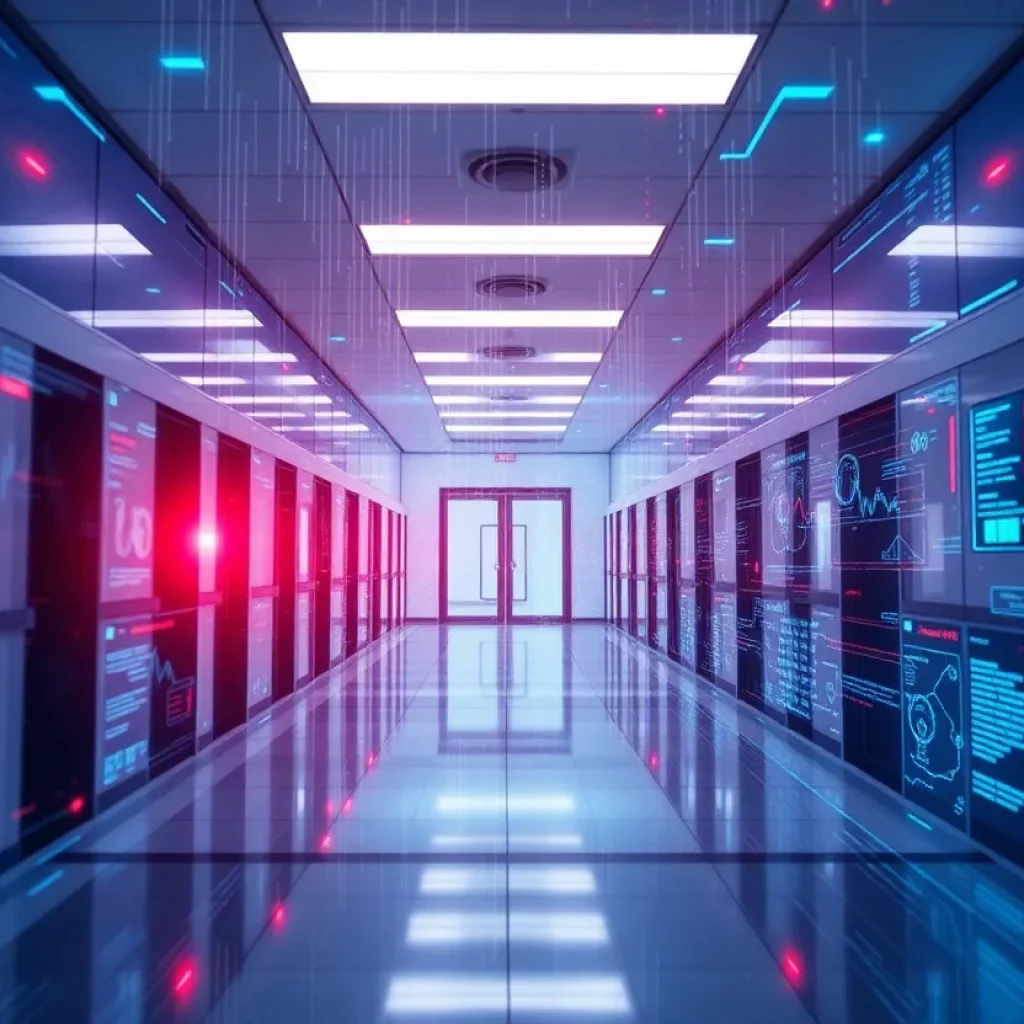News Summary
The healthcare sector is reeling from a major ransomware attack on Change Healthcare, impacting over 100 systems and potentially affecting 190 million individuals. In a separate incident, Yale New Haven Health System faces multiple lawsuits following breaches. As financial burdens rise, calls for legislative reform to enhance cybersecurity in healthcare grow louder amidst a backdrop of legal challenges and patient anxiety.
Healthcare Sector Shaken by Major Ransomware Attacks: A Call for Cybersecurity Reform
The healthcare sector is reeling from a devastating ransomware attack on Change Healthcare that occurred on February 21, 2024. The attack is believed to involve the notorious ALPHV/Blackcat group and has triggered a crippling outage that affected over 100 systems, causing what many describe as a significant disruption across an already-pressured industry. The aftermath of this breach could potentially affect up to 190 million individuals, which is roughly one-third of the U.S. population, prompting widespread alarm within both healthcare organizations and among patients.
The High Cost of Cybercrime
In an attempt to navigate this crisis, Change Healthcare reportedly paid a ransom of $22 million to avert the release of sensitive data. However, the situation took an unexpected turn when the ALPHV group allegedly executed an exit scam, which led to further threats from a faction called RansomHub, compounding the anxiety surrounding potential data exposure.
Change Healthcare has since confirmed that this breach may have compromised sensitive patient information, including medical records, insurance information, and even Social Security numbers. In light of these revelations, the Department of Health and Human Services (HHS) has noted that the reporting of this breach by Change Healthcare is compliant with federal law, but that hasn’t eased the fears of those impacted.
Legal Turbulence Following Breaches
In a parallel incident, the Yale New Haven Health System (YNHHS) faces a torrent of legal challenges with eight federal lawsuits filed against it following a separate cybersecurity breach. These lawsuits claim inadequate data protection measures and delayed notifications to patients affected by the breach. Plaintiffs in these suits are seeking damages, free lifetime identity protection, and improvements to the system’s cybersecurity protocols.
Individuals impacted by both the Change Healthcare and YNHHS breaches have reported a surge in spam and phishing attempts following the incidents, further increasing concerns about personal information safety. These troubling experiences have led to numerous calls for reform in how healthcare organizations manage and secure sensitive data.
Financial Strain in the Healthcare Sector
The financial fallout from these breaches is staggering, with UnitedHealth Group reporting losses in the billions due to the recent ransomware attack and ongoing legal implications. Legal experts are now advocating for flexible repayment plans to ease the financial burden on struggling healthcare providers that were impacted by the outages.
The sheer scale of these incidents has sparked numerous investigations at both state and federal levels into the compliance of Change Healthcare and YNHHS with HIPAA and other data protection regulations. The legal landscape is shifting rapidly, particularly as laws like Washington’s My Health My Data Act (MHMDA) impose stringent requirements for the collection and handling of consumer health data.
Need for Legislative Reform
Cybersecurity experts have criticized the healthcare sector for its inadequate preparedness and response strategies, especially regarding ransom payment protocols and robust data protection measures. As healthcare providers face immense challenges stemming from these breaches, calls for legislative reform to bolster cybersecurity practices and enhance accountability among healthcare organizations are becoming increasingly urgent.
In summary, the recent cyberattacks on Change Healthcare and YNHHS have left a trail of disruption, legal challenges, and heightened anxiety in a sector already known for its critical importance. As the call for reform echoes louder, the future of healthcare cybersecurity hangs in the balance, with both patients and providers advocating for a safer, more secure digital environment.
Deeper Dive: News & Info About This Topic
HERE Resources
Global Travel and Services Disrupted by Major Tech Glitch
Funding Boost for Startups in South Carolina
Lawyer Challenges Elon Musk’s Role in Federal Government
Additional Resources
- The HIPAA Journal: UnitedHealth Group Recovery Efforts Following Change Healthcare Cyberattack
- The HIPAA Journal: AMA Urges Flexible Repayment Plans for Providers Impacted by Change Healthcare Ransomware Attack
- The HIPAA Journal: Change Healthcare Cyberattack is the Biggest Data Breach of 2024
- The HIPAA Journal: Nebraska Attorney General Files Suit Against Change Healthcare Following Ransomware Attack
- The HIPAA Journal: Healthcare Providers Report Financial Strain from Change Healthcare Cyberattack
- Wikipedia: Health Insurance Portability and Accountability Act (HIPAA)
- Google Search: Change Healthcare data breach
- Google Scholar: Ransomware attacks healthcare sector
- Encyclopedia Britannica: Cybersecurity
- Google News: Change Healthcare cyberattack
Author: STAFF HERE CHARLESTON
The CHARLESTON STAFF WRITER represents the experienced team at HEREcharleston.com, your go-to source for actionable local news and information in Charleston, Charleston County, and beyond. Specializing in "news you can use," we cover essential topics like product reviews for personal and business needs, local business directories, politics, real estate trends, neighborhood insights, and state news affecting the area—with deep expertise drawn from years of dedicated reporting and strong community input, including local press releases and business updates. We deliver top reporting on high-value events such as the Spoleto Festival USA, Charleston Wine + Food Festival, and the MOJA Festival. Our coverage extends to key organizations like the Charleston Metro Chamber of Commerce and the Charleston Museum, plus leading businesses in tourism and maritime industries that power the local economy such as South Carolina Ports Authority and the Charleston Visitor Center. As part of the broader HERE network, including HEREaiken.com, HEREbeaufort.com, HEREchapin.com, HEREcharleston.com, HEREclinton.com, HEREcolumbia.com, HEREgeorgetown.com, HEREgreenwood.com, HEREgreenville.com, HEREhiltonhead.com, HEREirmo.com, HEREmyrtlebeach.com, HEREnewberry.com, HERErockhill.com, HEREspartanburg.com, HEREaustin.com, HEREcollegestation.com, HEREdallas.com, HEREhouston.com, and HEREsanantonio.com, we provide comprehensive, credible insights into South Carolina's dynamic landscape.










